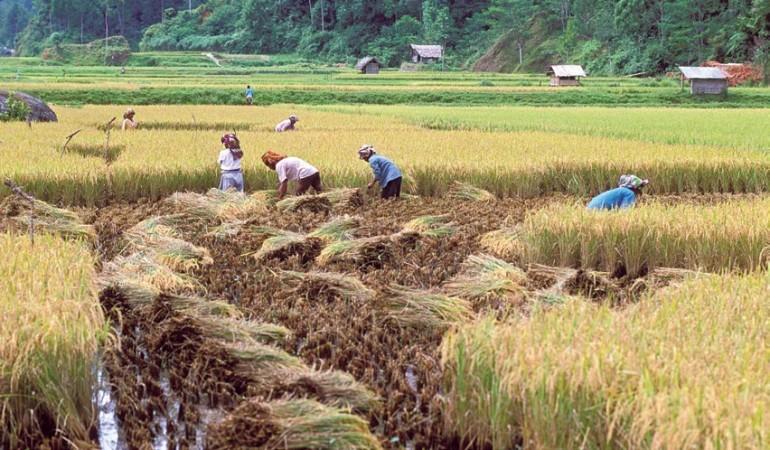
Pepsi Co has sued four Gujarati farmers for Rs 4.2 crore for growing potato crop variety which it uses for manufacturing the popular Lays chips. The global multi-billion dollar food conglomerate calls it as an "infringement of their intellectual property rights." The poor farmers have pleaded the support of the state government and launched a campaign as the case will be now heard in a local Ahmedabad court on Friday.
Each of the farmers has been sued for Rs 1.05 crore for growing Lays variety of potato crops and have even alleged that the US-based Pepsi even hired private detectives to spy on them to extract the information about seed variety they were sowing, the Hindu reported.
In a year, Pepsi has sued at least nine such small-time farmers from three districts of Gujarat for growing the potato variety which is used in their chips. In a letter addressed by the farmers to the Protection of Plant Varieties and Farmers' Rights Authority, the farmers stated that Pepsi hired a private detective agency which took secret video footage and collected samples from their fields without disclosing their intention.
"These farmers are small, holding around 3-4 acres on an average, and had grown a potato crop from farm-saved seed after they accessed the potato seed locally in 2018," it added.
The regulatory authority is yet to act on the farmer's demands and said that they will await the final court orders.
Another commercial court in Ahmedabad had given an ex-parte interim injunction to the farmers who were sued by Pepsi amid conflicting reports of the samples being the patents of the corporate and sent it for laboratory analysis.
Pepsi and farmers at loggerheads
Both Pepsi and the farmers are invoking different sections of Protection of Plant Varieties and Farmers' Rights (PPV&FR) Act, 2001, to claim their rights over the seed variety even as the matter is still sub-judice. While the section 64 of the PPV&FR Act talks about protection of IPR, the section 39 of the same act allows the farmers to sow, grow, save, use, exchange, sell his field produce or a seed variety as long as it is not registered as a branded variety. The farmers have therefore contested that they have not used any branded seeds and that they have grown a farm-saved seed accessed locally in 2018.
![Pepsi and Coke denied the allegations that suggested their products contain heavy metals and added that they have not received any such reports from the government [Representational Image] Pepsi Coke](https://data1.ibtimes.co.in/en/full/621955/pepsi-coke.jpg?h=450&l=50&t=40)








